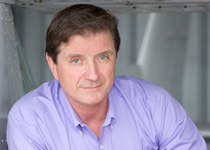License to Learn: Confirmation bias
Saying no to the Yes Man
 Have you ever flown with someone who agreed with every decision you made, even the ones that played out badly? I’m speaking of someone who kept saying yes to your every muse.
Have you ever flown with someone who agreed with every decision you made, even the ones that played out badly? I’m speaking of someone who kept saying yes to your every muse.
“I think the forecast for icing conditions en route is unlikely to be correct.” Yes, you’re right. The current pireps are probably incorrect, too.
“The engine’s oil temp is suddenly running a bit high, but that shouldn’t be a problem.” You’re right again. The fluctuating oil pressure needle is probably an unrelated issue.
“There’s no need to take an instrument proficiency check just because I haven’t logged instrument time in two years. I know of many pilots in my position that fly IFR just fine even though they’re not current.” So true. Just because the FAA sets standards for instrument currency, this doesn’t necessarily apply to a person of your skill.
Do you know someone like this? I think you do. It’s you (and me).
I’m speaking of that part of us known as our Yes Man.
Each of us has a Yes Man (or woman) accompanying us everywhere we go. He or she manifests in the form of a cognitive liability that psychologists call confirmation bias.
Confirmation bias is our dysfunctional predilection to pick and choose information that supports our beliefs while dismissing any data that doesn’t agree. It urges us to interpret information in a manner that affirms a decision without revealing its weaknesses. Confirmation bias is your Yes Man hard at work.
So, what does having a Yes Man do for you? He makes your life easier. Unfortunately, if you’re a pilot he doesn’t necessarily make it longer. Contradictory information makes the brain work harder. Your Yes Man eases this burden by favoring information that supports your ideals, desires, analyses, and ambitions. While this disposition might be an asset on land, it’s seldom an asset aloft.
Suppose you flew 300 miles to judge an all-day tennis tournament. After eight hours courtside you notice that your eyeballs move back and forth on their own. Your fatigue leads you to believe that your ocular oscillations will enhance your instrument scan. Silly you. You’re not worried about dozing off aloft because in the past you’ve willed yourself to stay awake. You incorrectly conclude that where there’s a will, there’s awake. Thank you, Yes Man. There might indeed be a wake.
Seeking to further support your intention to fly, you recall attending one of Rod Machado’s safety seminars where he stated that the jaw motion from shelling and eating sunflower seeds can help keep you awake. However, your Yes Man prevents you from properly assessing Rod’s caveat that eating sunflower seeds can keep you awake long enough for you to hallucinate from lack of sleep.
Halfway home, the fatigue-induced hallucinations kick in. You find yourself alternately pushing each rudder pedal just to watch the inclinometer’s ball bounce back and forth between each end of the glass tube. You’re not sure why this is so pleasing, but it does make you happy. It’s as if you’re back in the judging box. Suddenly the lady controller’s voice grows a bit frosty after she asks you for an altitude report and you reply by saying, “Fifteen, love.” Congratulations. You’re an accident in the making and have your Yes Man to thank for it.
In many ways confirmation bias serves us well, but only as long as the cost of a poor decision is less than the mental discomfort incurred by thinking it through carefully. So what’s a pilot to do?
How about saying no to your Yes Man, to see if you should believe him? You can do this by making a conscious attempt to prove your important decisions wrong, after you’ve looked for reasons to prove them right. After all, attempting to prove yourself (your hypothesis) wrong is the basis of the scientific method. It’s how a scientist discovers what’s true instead of what he or she wants to be true. Rebutting your Yes Man with a no is an effective strategy that every pilot should use to counter the potentially negative effects of confirmation bias. And, if tennis and flying are your business, it’s a strategy that could lengthen your career on a court of clay instead of judging it in a court of NTSB law.


